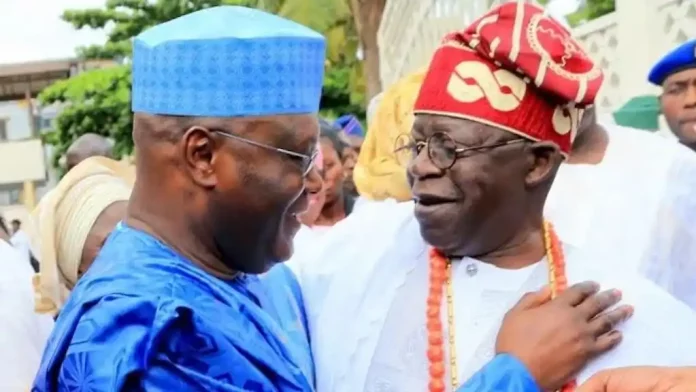THE intimidation, threats, and harassment of non-indigenes after the February 25 presidential/National Assembly elections in Lagos State speak to the primitive nature of politics in Nigeria. There have been reports of physical attacks, threats to evict non-natives from the state, and denial of access to social services because the presidential candidate of the All Progressives Congress, who is from Lagos, lost the state to Peter Obi, the Labour Party candidate from Anambra State in the South-East. The security agencies and leaders of thought in Lagos and throughout the South-West should defuse this incendiary trend with urgency.
This tendency does not represent the character, agenda, or cosmopolitan outlook of the indigenous people of South-West Nigeria. The thugs, violent transport union enforcers, motor park touts and petty criminals assaulting others should be promptly disowned. Most of them are not even Lagos State indigenes. It is important that the political leadership of Lagos and the Yoruba pressure groups immediately speak out, dissociate themselves from the perpetrators and take proactive actions to discourage further harassment of innocent persons. Every Nigerian has the right to reside, and exercise all fundamental freedoms in any part of the country without fear of molestation. This cannot be abridged by anyone.
Tensions soared shortly after the balloting but degenerated on Monday when the Independent National Electoral Commission declared Obi the winner in Lagos. Incensed at the defeat of their candidate, some APC supporters began to harass non-Yoruba residents and their property. This is unwarranted, a gross violation of the fundamental rights of their victims.
There were reports of attacks at markets dominated by the Igbo traders in Lagos Island, Alaba, Ilasamaja, Computer Village in Ikeja, and Ikotun. Traders hurriedly closed their shops in panic. The Ladipo spare parts market was shut down for two days.
This is bad politics perpetrated by miscreants that have become accustomed to hiring themselves out as thugs to politicians.
INEC said Obi polled 582,664 votes in Lagos, while the APC candidate (now President-elect), Bola Tinubu, scored 541,850. Atiku Abubakar of the Peoples Democratic Party came in a distant third with 75,750 votes.
Lagos is Nigeria’s sole megacity with 14 of its 20 local government areas constituting the urban conurbation. Governor Babajide Sanwo-Olu, and Tinubu, on whose behalf the barbarians claim to be acting, should take a stronger stand than their separately issued disclaimers and appeals for calm. They should ensure that their violent supporters do not tarnish the cosmopolitan essence of Lagos. Sanwo-Olu should order the police to act forcefully, identify and prosecute the criminals, prevent further attacks, and protect all residents of Lagos.
Traders should also be responsible; some of them violated an agreement to shut all markets last Monday given the tension generated by the elections, prompting the thugs, unsolicited, to move in to enforce the order. It was not their responsibility to do so; the police should therefore take all necessary measures to nip the nonsense in the bud.
Sanwo-Olu and the police bear some blame as threats to non-indigenes and LP supporters had been growing well before the elections. Continuous voter registration and collection of permanent voter card exercises in perceived strongholds of the LP were on some occasions disrupted. Obi’s supporters were molested near Jakande, Lekki, and around the Tafawa Balewa Square, the venue of the grand finale of his presidential campaign in February.
The PDP has also had its fair share of harassment. Both the LP and PDP accused the Lagos State Signage and Advertisement Agency of sabotaging their outdoor publicity campaigns. The governorship candidate of the PDP, Abdulazeez Adediran, along with his team, was reportedly attacked at the Ikoga junction of Badagry LGA during a campaign tour last October.
During the 2015 election cycle, the Oba of Lagos, Rilwan Akiolu, in a fit of indiscretion, warned non-indigenes not to vote against the then Governor, Akinwumi Ambode, or they would “be thrown into the lagoon.” Some other traditional rulers have this time been accused of similarly threatening non-indigenes.
They are violating the fundamental rights guaranteed by the 1999 Constitution and should be stopped. Sanwo-Olu must rise above partisanship and his second-term ambition and fulfil his oath of office to protect the lives and property of every resident of Lagos.
The traditional rulers plunging into politics should be reined in, cautioned on the need to be politically neutral and on the consequences of misusing their positions to cause communal disharmony, peddle hate speech, or promote electoral violence.
Undoubtedly, this barbaric behavior does not reflect the values of the Yoruba people. It is not in their character of liberalism and ‘open arms’ accommodation of other persons and faiths. The Yoruba accede to the supremacy of valid arguments and established diplomatic performances that help to entrench harmony over acrimony.
Its urbane, accommodating nature enabled the nationalist icon, the late Nnamdi Azikiwe, to build his political base and business empire in Lagos. His party won some pre-independence and post-colonial era elections in Lagos without molestation. Mbonu Ojike, born in present-day Imo State, was the Deputy Mayor of Lagos in 1951. Many others from around the country and beyond built businesses and political careers in Lagos unmolested. A few misguided ruffians should not be allowed to derail the legacy. The entire world condemned the slaughter of over 1,000 persons in post-election violence in the North in 2011; such intolerance is alien to the cosmopolitan South-West. Amnesty International, the International Crisis Group, and Nextier SPD had in 2022 predicted violence in Lagos, fearing that it would lead to voter apathy.
Lagos residents should not be cowed; they must resolve to vote for the governorship and state legislature candidates of their choice on March 11 with a greater burst of energy than they displayed on February 25.
Security agencies should nip hate speeches, insults, caricatures, and innuendoes that may instigate any person or group to violence. They must activate a sustained and well-coordinated approach to protecting the lives and well-being of voters in the next election. Sanwo-Olu must act responsibly, and decisively.

